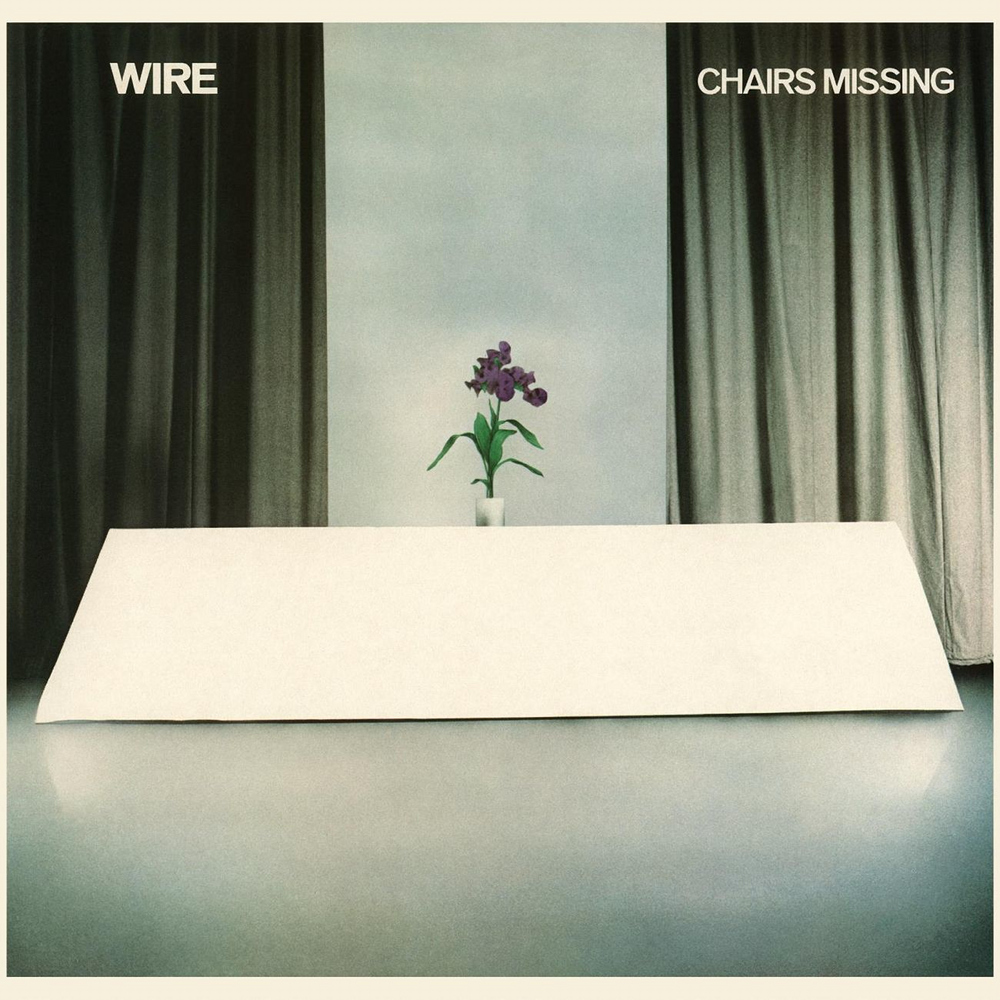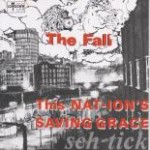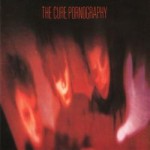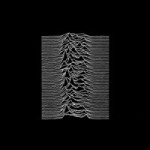Wire : Chairs Missing

Chairs Missing is the sound of discovery. It’s the product of a band dispensing with their previously established approach and immediately charting a path toward something new and unheard. UK quartet Wire‘s exploration and experimentation led to them earning the dubious if amusing title, “Pink Floyd of the new wave,” which was a double-edged sword at best. While Floyd were at the forefront of progressive rock, taking music in new directions and out of the norm, they also represented an entirely different school of thought; they were maximalists, increasingly embracing a more-is-more approach on albums such as Animals and The Wall. Wire, while progressive in nature, never repeated an idea that wasn’t warranted, serving the song by only adding just enough elements. What they were doing was well outside of the punk norm—which they never claimed to begin with. It wouldn’t even be a stretch to say that those who became accustomed to Pink Flag would have even been taken aback by the strange sounds put forth on Chairs Missing.
Producer Mike Thorne, who navigated the analog obstacle course on Pink Flag, was slated to record Chairs Missing when Wire had assembled several new tracks. Thorne was asked to play keyboards, yet on manic new wave numbers like “Another The Letter,” that implied some sort of inhuman virtuosity that Thorne didn’t, admittedly, possess. The band threatened to replace Thorne with Brian Eno if he wasn’t able to do it, which inevitably lit a fire under him to figure out how the hell to actually play something that fast. And if you hear the finished recording of “Another The Letter” today, it’s almost ludicrous how fast it sounds. Try moving your fingers along to it and see if you’re capable.
But miraculous feats of keyboard noodling aside, the band’s songs had actually gotten more free and unpredictable. Seemingly discordant elements are combined harmoniously, though not exactly “fluidly.” The metronomic bass that opens “Practice Makes Perfect” immediately shows a new, strange direction for the band, while the hazy, ringing guitar notes that seep through it make it something even more intriguing. Soon enough, layers of voices, keyboard, choppy guitar chords and echoing sound effects seem to pile up, turning into something maddening and altogether unsettling, frontman Colin Newman eventually shouting “waiting/waiting/waiting for ussss!”
From there, the album becomes a gauntlet of unusual sounds, experimental ambience, punk rock energy and art-school weirdness. “French Film Blurred” is accessible but far from normal, while “Men 2nd” is bouncy and rocking, almost like the old days, but not nearly as fuzzy. On “Marooned,” the Pink Floyd reference almost begins to make sense, as the band floats over a slow, ethereal melody that suggests that other band’s stoned soundscapes. Yet the song that follows, “Sand In My Joints,” is a two-chord raveup that almost sounds pulled from the Pink Flag sessions.
The center of the album is a gravitational center of weirdness, starting with the choppy “Being Sucked In Again,” continuing with the rumbling “Heartbeat” through the pounding epic centerpiece “Mercy.” By far, it’s one of the most overwhelming songs in the band’s catalog, yet it’s one that evokes strong reactions; I’ve played it for friends who, upon hearing it for the first time, immediately called it their favorite. These three curiosities are juxtaposed with the two singles from the album, which are sequenced in a row. First is “Outdoor Miner,” which has a counterpart seven-inch version that’s longer than the album take, curiously. “Miner” is a clean-toned, pretty four-chord melancholy pop song. But the one that follows, “I Am the Fly,” is far more menacing and dissonant. The band described it as a “disco kind of thing” when recording it, which isn’t too far from the truth. The beat, though devoid of snare, is heavy on handclaps, while the song, strange as it is, actually ranks among the band’s catchiest. Who could resist a chorus of “I am the fly/fly in the/fly in the/ointment?”
The song that still intrigues the most is the subdued, almost Suicide-like “Used To.” Sounding like a more effects-laden and compressed version of “I Am The Fly,” it’s the song that seems to be the gateway between this album and their subsequent masterwork, 154. Considering how notorious the band was for losing interest in something instantaneously, it’s a wonder any of their albums were ever finished at all, let alone the complex and difficult Chairs Missing. And yet, their most challenging, intriguing album was still yet to come.
Similar Albums/Albums Influenced:
 The Fall – This Nation’s Saving Grace
The Fall – This Nation’s Saving Grace
 The Cure – Pornography
The Cure – Pornography
 Joy Division – Unknown Pleasures
Joy Division – Unknown Pleasures
Jeff Terich is the founder and editor of Treble. He's been writing about music for 20 years and has been published at American Songwriter, Bandcamp Daily, Reverb, Spin, Stereogum, uDiscoverMusic, VinylMePlease and some others that he's forgetting right now. He's still not tired of it.

